Fifty Chosen Articles:
Number Forty.
Originally posted in March 2019.
AA is a fellowship of people who help each other stay sober
and live a better life.
By Roger C.
Let’s go simple with the answer to this question.
Fellowship
We can start with the first sentence of the AA Preamble published in 1947 in the Grapevine magazine:
Alcoholics Anonymous is a fellowship of people who share their experience, strength and hope with each other that they may solve their common problem and help others to recover from alcoholism.
Let’s go even simpler now and understand the word “fellowship” as a “group”. AA considers itself a “bottoms up” hierarchy, in terms of autonomy, authority and power. The single most important, powerful and independent piece of AA is a group.
And that’s any AA group. That’s your own AA group, if you belong to a group. As of stats shared in 2017 by the GSO, eighty-six percent of members belong to a home group.
You don’t need to have to know – or have any involvement with – a local AA Intergroup or Central Office, your Area Assembly or the General Service Office of AA in New York City. For a vast majority of people in recovery that’s the way it is and the way it ought to be. It’s the way we support each other. The only thing that matters for most AA folks is the group: people who share their experience strength and hope with each other that they may solve their common problem and help others to recover from alcoholism.
All right, let’s go back again, way, way back to the mid-1940s, to get more of an understanding of AA.
It was put this way in 1946 in Cleveland:
AA Groups are fundamentally little bands of people who are friends, who can help each other stay sober. Each group therefore reflects the needs of its own members. The way a group is managed is the way its members want it to be managed for their common benefit.
A group doesn’t have to behave like any other group. A group “reflects the needs of its own members”. Period.
It’s important to note that there is no need for any conformity from one group to another. This is how Bill Wilson put it in a Grapevine article, “Anarchy Melts”:
So long as there is the slightest interest in sobriety, the most unmoral, the most anti-social, the most critical alcoholic may gather about him a few kindred spirits and announce to us that a new Alcoholics Anonymous Group has been formed. Anti-God, anti-medicine, anti-our Recovery Program, even anti-each other — these rampant individuals are still an AA Group if they think so!
And then of course there is AA’s Tradition Three, also written in 1946. This is the long form:
Our membership ought to include all who suffer from alcoholism. Hence we may refuse none who wish to recover. Nor ought AA membership ever depend on money or conformity. Any two or three alcoholics gathered together for sobriety may call themselves an AA group, provided that, as a group, they have no other affiliation.
“We may refuse none who wish to recover.” Pretty clear.
This is the rather obvious and inevitable motivation of each and every AA group. Tradition Five: “Each group has but one primary purpose – to carry its message to the alcoholic who still suffers”.
But back to Tradition Three. It asserts that a requirement for an AA group is that it must have “no other affiliation.” Let’s talk a bit about affiliations.
 To begin with, it’s important to distinguish between “inside” and “outside” affiliations. What Tradition Three is talking about is what is understood as an “outside” affiliation.
To begin with, it’s important to distinguish between “inside” and “outside” affiliations. What Tradition Three is talking about is what is understood as an “outside” affiliation.
There are plenty of “inside” affiliations and they are not a problem. Early on I mentioned local AA Intergroups or Central Offices, Area Assemblies or an AA General Service Office (worldwide, there are a total of 62 autonomous General Services Offices). Most groups are linked to these: many groups have a General Service Representative (GSR) who attends meetings of these affiliated organizations.
Then there are “specialized” groups within AA, as they are described in the pamphlet, The AA Group. They are also described as “special purpose” groups. These include doctors, women, atheists, etc. Here is a list of the very first annual or biennial conferences held by a number of these groups:
- IDAA – International Doctors in AA (1949)
- ICYPAA – International Conference of Young People in AA (1958)
- IWC – International Women’s Conference (1965)
- ILAA – International Lawyers in AA (1975)
- GAL-AA – Gays and Lesbians in AA (1976)
- NAI-AA – Native American Indian AA (1991)
- ICSAA – International Conference of Secular AA (2014)
The only thing that is asked of these groups is that “they open the door to all alcoholics who seek help, regardless of profession, gender or other distinction”. (AA Group, p. 16) In my own experience, these groups do indeed do that, as I have attended several of these special purpose group meetings.
Okay, that’s it for “inside” affiliations. What about “outside” affiliations?
Self-Contradiction
The AA Preamble, quoted at the beginning of this piece, goes on to say: “AA is not allied with any sect, denomination, politics, organization or institution.”
If AA is to respect itself then it must not have an “outside” affiliation.
And yet most “traditional” AA groups in North America are allied with a religion. That religion is Christianity.
How are they allied with Christianity? These groups end their meetings with the Lord’s Prayer. “Our Father who art in Heaven” is a venerated Christian Prayer. It can be found in the New Testament in the Gospel of Matthew and in the Gospel of Luke. It was taught by Jesus as the way to pray and is universally understood as the summary of the religion of Christianity.
To suggest it is not a Christian prayer is either ignorance or hypocrisy.
In the United States, the Lord’s Prayer – or any other prayer – has been prohibited in public schools since 1962. In Canada, the use of the Lord’s Prayer in schools in Ontario and all parts of Canada ended in 1988 when the Ontario Court of Appeal ruled that the “recitation of the Lord’s Prayer, which is a Christian prayer… impose(s) Christian observances upon non-Christian pupils and religious observances on non-believers”.
Nevertheless at the end of traditional AA meetings, people stand up, hold hands, and recite the Lord’s Prayer. It’s shameful. This is not only an “outside” affiliation or alliance but it blatantly contradicts the purpose of an AA group as it increasingly drives more and more “alcoholics who seek help” out of the rooms of AA.
So, is there self-contradiction within traditional AA? You bet. And it’s not 1935 anymore. It’s time to grow up and behave as if we are in the twenty-first century.
The “Suggested” Program
We know, of course, that there is a program in Alcoholics Anonymous: the 12 Steps. As they were published in 1939, half of the Steps contain a reference to God.
As a result of these references to God, for a number of AA members, two questions emerge.
First, do the Steps have to be done exactly as they were published in 1939?
Well, no, according to the author of the Steps, Bill Wilson. To begin with, the Steps are described in the Big Book as a “suggested” program of recovery (page 59).
And can they be altered? Rewritten? The number of Steps changed? At the third General Service Conference, held in 1953, Bill was quite clear:
In one country, the Steps have been altered somewhat in phrasing and reduced to seven. Do you think we should tell those people: “You can’t belong to Alcoholics Anonymous unless you print those Twelve Steps the way we have them?” No…. We even have a Tradition that guarantees the right of any group to vary all of them, if they want to. Let’s remember, we are talking about suggested steps and traditions.
In a book written a few years later, Bill repeated himself:
We must remember that AA’s Steps are suggestions only. A belief in them as they stand is not at all a requirement for membership among us. This liberty has made AA available to thousands who never would have tried at all, had we insisted on the Twelve Steps just as written.
Alcoholics Anonymous Comes of Age, page 81, 1957
Second, do they even need to be done at all?
No. Again, we are talking about a “suggested” program. And then again there is Tradition Three, “The only requirement…”. Bill summarized both in a letter written to Father Ford in 1957: “A belief in the Steps or in God is not in any way requisite for AA membership.”
The Steps can be altered, rewritten, renumbered, or ignored completely, if that is the desire of a member or group.
It is important to acknowledge that “a personality change” (Appendix II of the Big Book) is often a key component of recovery from alcoholism. And the Steps can be an important part of that, even essential for some people. But it should also be noted that there are many other paths to recovery. As Bill put it in a speech at the General Service Conference in 1965: In AA “the full liberty to practice any creed or principle or therapy should be a first consideration. Hence let us not pressure anyone with individual or even collective views.”
This is a point of view that clearly was shared by the other co-founder of AA, Dr. Bob. As it was put in the 1940 Akron Pamphlet, edited by Dr. Bob, “Spiritual Milestones in Alcoholics Anonymous”:
Consider the eight-part program laid down in Buddhism: Right view, right aim, right speech, right action, right living, right effort, right mindedness and right contemplation. The Buddhist philosophy, as exemplified by these eight points, could be literally adopted by AA as a substitute for or in addition to the Twelve Steps. Generosity, universal love and welfare of others rather than considerations of self are basic to Buddhism.
And that final sentence aptly describes what we believe ought to be basic to AA.
AA Is Not Medical Treatment
Much of the above will annoy a number of members of traditional Alcoholics Anonymous. These “fundamentalists” treat the Big Book as a Bible and the 12 Steps as the only solution for folks suffering from alcoholism or addiction.
They are in part inspired by this quote from the Big Book which is commonly shared at the beginning of so many AA meetings: “Rarely have we seen a person fail who has thoroughly followed our path. Those who do not recover are people who cannot or will not completely give themselves to this simple program…”
The path? The program? There is only one in that quotation: the 12 Steps.
There are often good comments on AA Agnostica and here is one, by Megan: “A most viciously dangerous fundamentalist distortion of AA is ‘don’t go to a therapist or psychiatrist’ and ‘get off all medications’”. She then talks about suicides as a result of people being coerced into taking that “dangerous advice”.
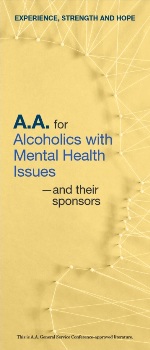 Over the years we have learned that alcoholics commonly suffer from other problems. Gabor Maté, author of In the Realm of Hungry Ghosts, believes that most addictions are the result of PTSD. We also know that there are genetic causes. Indeed, roughly 6 out of 10 AA members receive various forms of medical treatment, from medication to therapy, and that’s the way it should be. In its pamphlets, therefore, The AA Members – Medications and Other Drugs and AA for Alcoholics with Mental Health Issues, it is advised that “No AA member should ‘play doctor’; all medical advice and treatment should come from a qualified physician.”
Over the years we have learned that alcoholics commonly suffer from other problems. Gabor Maté, author of In the Realm of Hungry Ghosts, believes that most addictions are the result of PTSD. We also know that there are genetic causes. Indeed, roughly 6 out of 10 AA members receive various forms of medical treatment, from medication to therapy, and that’s the way it should be. In its pamphlets, therefore, The AA Members – Medications and Other Drugs and AA for Alcoholics with Mental Health Issues, it is advised that “No AA member should ‘play doctor’; all medical advice and treatment should come from a qualified physician.”
But, sad to say, many AA fundamentalists do indeed play doctor. Our commentator, Megan, added this, “Fundamentalists hate those pamphlets almost as much as the recent ‘God Word’ pamphlet.” Perhaps she is right and the desire by some to control everything and everyone is the mark of a dominating, dogmatic, and anti-democratic zealot.
Our co-founder, Bill, saw this coming in AA. At the 1965 Conference he went on to say that dogmatism of this kind often leads to a form of arrogance: “Whenever this brand of arrogance develops we are sure to become aggressive. We demand agreement with us. We play God. This isn’t good dogma. This is very bad dogma. It could be especially destructive for us of AA to indulge in this sort of thing.”
As Megan put it, this fundamentalism is a “distortion” of AA.
What is AA?
Let’s go back to the start. AA is a fellowship. AA is a group, and that could be your group.
It is a mutual aid organization, if you will.
It isn’t about rules. As it is put in Living Sober, written by Barry Leach:
There is no prescribed AA “right” way or “wrong” way. Each of us uses what is best for himself or herself – without closing the door on other kinds of help we may find valuable at another time. And each of us tries to respect others’ rights to do things differently.
But we do have a primary purpose, and that is “to stay sober and help other alcoholics to achieve sobriety.” As Bill put it, AA is a “kinship of a universal suffering”.
AA’s co-founders met on May 12, 1935 (Mother’s Day), with Bill trying to help Dr. Bob sober up at Dr. Bob’s home in Akron, Ohio. Bill worked away at that for almost a month.
It was one drunk helping another. And that, my friends, remains the very essence of AA.
For a PDF of this article, click here: What is AA?
The post What is AA? first appeared on AA Agnostica.
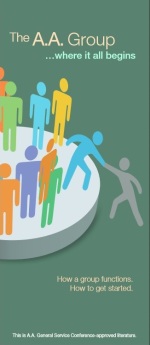
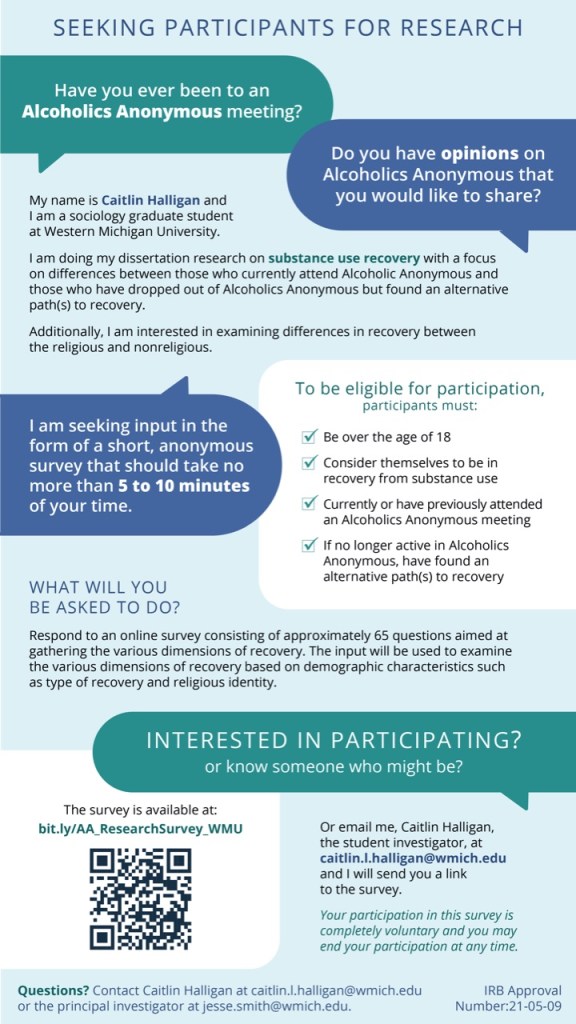


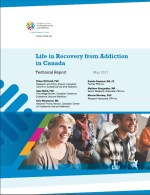

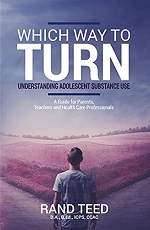 Awarded the 2015 Angus Campbell Award for the Province of Saskatchewan.
Awarded the 2015 Angus Campbell Award for the Province of Saskatchewan.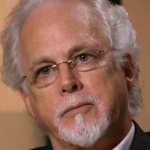 Bill’s website, Selected Papers of William L. White, “contains the full text of more than 300 articles, 8 monographs, 30+ recovery tools, 9 book chapters, 3 books, and links to an additional 22 books written by William White and co-authors over the past four decades as well as more than 100 interviews with addiction treatment and recovery leaders.”
Bill’s website, Selected Papers of William L. White, “contains the full text of more than 300 articles, 8 monographs, 30+ recovery tools, 9 book chapters, 3 books, and links to an additional 22 books written by William White and co-authors over the past four decades as well as more than 100 interviews with addiction treatment and recovery leaders.”